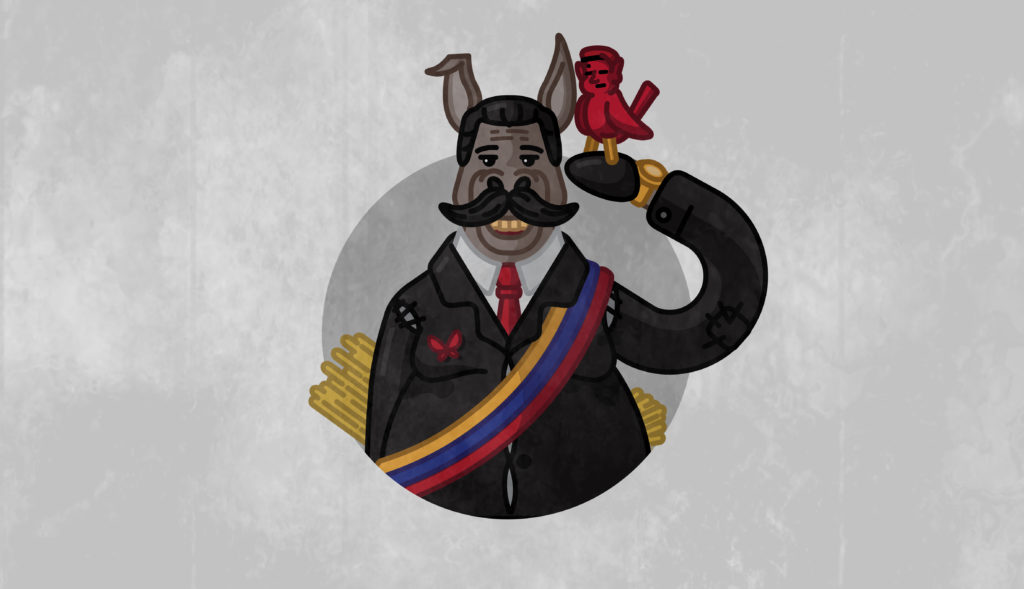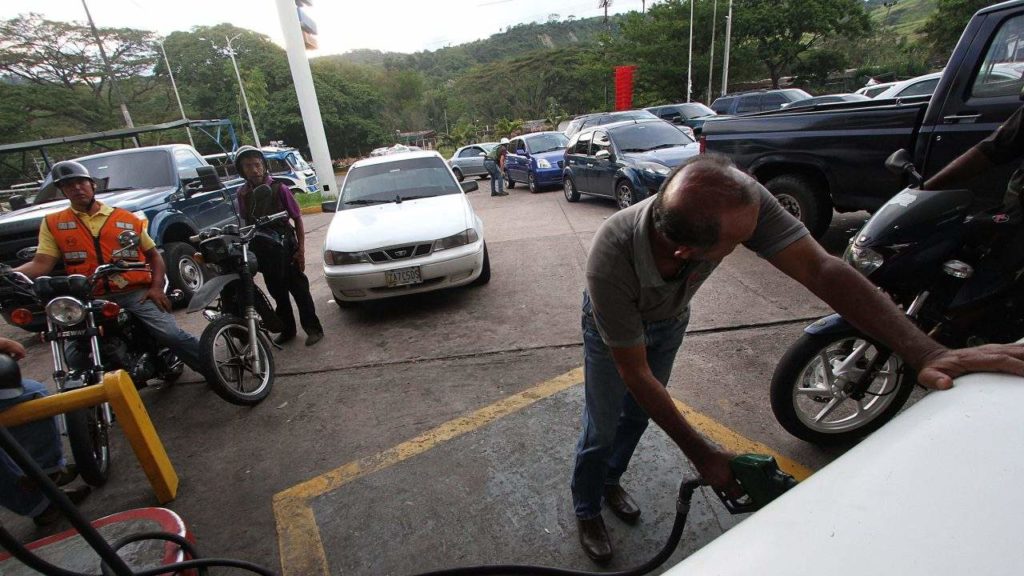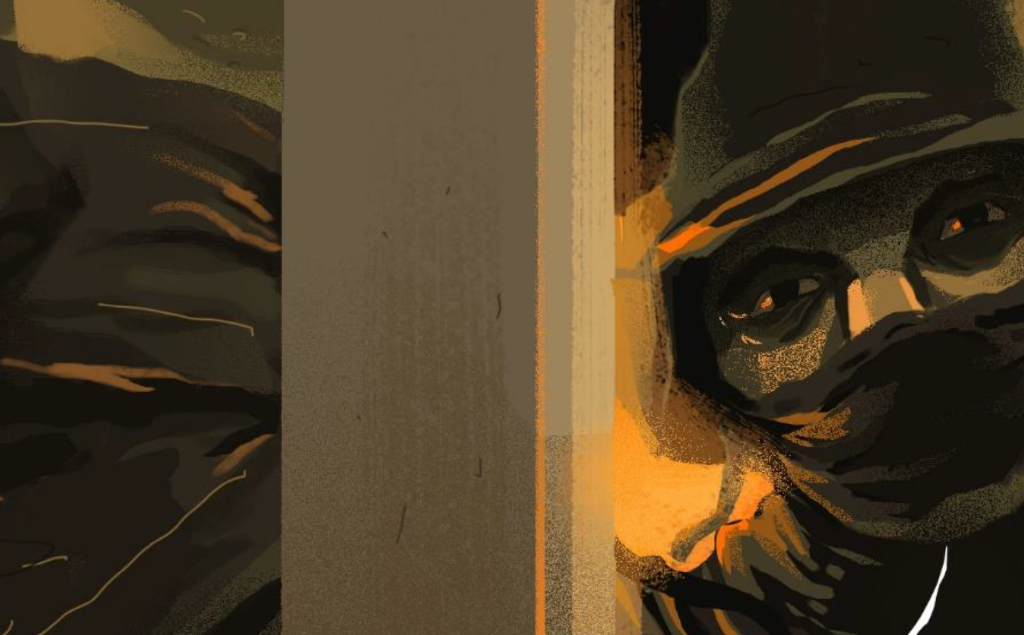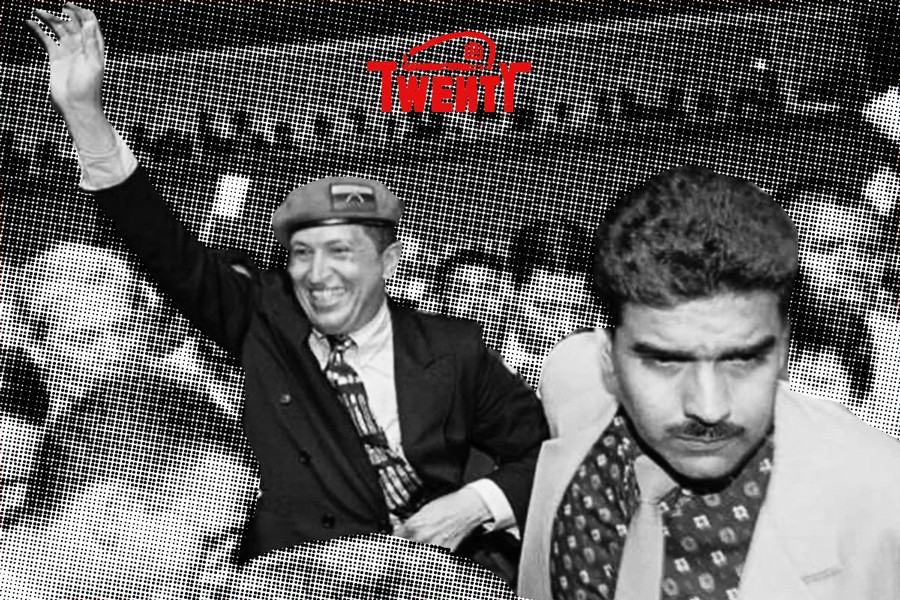GEHA’s Best of 2018, Part IV (October - December)
The fourth and final installment of our 2018 kaleidoscope is here. What did the last three months of the year leave us?


To Helmut, my dear stepfather (1945-2018)
The Red Friday announcements continue to cast a big shadow over the country, while other events cause serious impact: from the viral anti-Maduro video that puts two firefighters in jail to the brutal death of Caracas councilman Fernando Albán while under SEBIN’s custody.
The arrest of former treasurer Alejandro Andrade puts more attention on the scandalous web of corruption created and encouraged by the government, particularly over one Raúl Gorrín. Finally, the municipal council election takes place in December with one of the largest abstention rates in history. Just in time for the 20th anniversary of Chávez’s rise to power.
The massive emigration drive continues but the government creates its own response plan to try diminish it. The discussion about a possible foreign intervention continues and the overall feel at home is of economic chaos and a growing sense of desperation. Very fitting for a year like 2018.
October
 “Let’s see, how do we make things funny?” That’s a question all comedians ask themselves. But a Venezuelan comedian needs to ask himself another question: how do we keep making things funny? Read more.
“Let’s see, how do we make things funny?” That’s a question all comedians ask themselves. But a Venezuelan comedian needs to ask himself another question: how do we keep making things funny? Read more.
- The Burro Mockery Could Spark a Rebellion, Ricardo Del Búfalo October begins with the aftermath of a viral video mocking Maduro, comparing him to a donkey. Comedian Ricardo Del Búfalo tells us about the power of laughter in dark times.
- The Heritage of Operación Cóndor, Ignacio Ayala. Why is there a serious pushback for a foreign intervention in Venezuela? Beyond the ideological divide, there’s the fear of the past coming back. A past that brought death and sadness to many.
- La Nona, Like Chavismo, Is a Parasite That Killed Its Host, Ana Victoria Silva. “La nona”, a famous theater play from Argentina serves as a good metaphor for chavismo.
- The Business that Feeds the Mine, Adriana Tovar. Deep down in Guayana, illegal mining has created a rarity: an economic boom right in the middle of the collapse.
- Venezuelans Set Out to Cross the Continent on Foot, Dylan Baddour. Many Venezuelans prefer to leave and they’re willing to walk thousands of kilometers across South America in search of a better life.
- Tools for Change: How Far Will Elections Take Us Right Now?, Ricardo Tozier. For those who advocate for elections as the way out of our mess, it’s not a simple case to make.
- Albán: Contradictions of the Guilty, Milagros Socorro. The shocking death of Caracas opposition councilman Fernando Albán, days after being arrested by SEBIN, causes stupor and indignation. More so when the official version tries to pin it as a suicide. But the overwhelming evidence available proves otherwise.
- When They Spoke of the Hombre Nuevo, They Meant ‘Child Beggars’, Mabel Sarmiento. In the streets of Caracas, child beggars are now common sight.
- Maduro Takes Important Steps in Social Espionage, Eugenio Martínez. The government keeps on pushing an intelligence network among the population in order to tighten control.
- Indigenous People’s Health and Traditions Threatened by CLAP and Mining, Tina Oliveira. Indigenous people see their health and traditions under threat of the CLAP boxes and the boom of illegal mining.
- The Sadness of Coming Back Home on a Plan Vuelta a la Patria Plane, Melanie Pérez Arias. There are those migrants who didn’t last enough abroad and when offered the chance to come back on a State-sponsored return program, they just take it.
- Adiós Teodoro, Francisco Toro. October ends with the passing of Teodoro Petkoff, a major political figure in the last decades. Quico offers a glimpse of why Teodoro was so important and what his legacy will be…
Special Mention: Ghoul Nation, written by David Parra & illustrated by ModoGráfico
November
 Gas went from being the cheapest in the world—one of Maduro’s complaints—to being the only one in the globe that’s given away for free, because sometimes service stations don’t even take money anymore. Read more.
Gas went from being the cheapest in the world—one of Maduro’s complaints—to being the only one in the globe that’s given away for free, because sometimes service stations don’t even take money anymore. Read more.
- Sabino Romero, the Chavista Yupka Chieftain Who Turned on the Revolution, Braulio Polanco & Nazaret Torres Indigenous leader Sabino Romero was killed more than five years go. His son took on his role.
- Declawing Gaita: How Protest Music Disappeared from Zulia’s Airwaves, Mario Pérez. La gaita is Zulians’ musical way to express themselves. But the hegemony changed it.
- Chavismo Kicks the Ill When They’re Down, Naky Soto. Naky goes inside an IVSS pharmacy, it’s an account of the heart of the struggle to find medicine in today’s Venezuela: a crossroad of inefficiency, cruelty and disdain.
- Mafias Search for Lost Gasoline, Civilians Pick Up the Last Drops, Víctor Amaya. You may find it ironic, that drivers have to search and wait for gasoline in an oil-producing country. With supplies now at the lowest levels, the dysfunctional subsidy system has reached rock bottom and even smuggling mafias who benefit are feeling the crunch.
- BusTV: Culture Jamming Censorship One Bus at a Time, Andrea Quintero. There’s more than one way to fight censorship and disinformation: please meet ElBusTV. Created during last year’s protests, it continues with its efforts, even if public transport dwindles.
- Backyard Burials: the New Venezuelan Way of Death, Valentina Gil. Even after death, Venezuelans cannot escape the crisis. Laying someone to rest is an ordeal.
- Raúl Gorrín’s Empire of Graft Comes Crashing Down, César Crespo. The arrest of former Treasurer Alejandro Andrade in the U.S. sets the spotlight on indicted local businessman Raul Gorrín.
- How the Lost World Was Lost, Michelle Torres. The beauty of Canaima National Park is getting destroyed by Guayana mining rush. Deep sigh…
- The Gorrinosphere: Why Chavista Crony Money Makes Its Way to Opposition Hands, Francisco Toro. Many in the Venezuelan opposition are scared of what the fall of Raul Gorrín would mean for them.
- Stateless Babies: The Legally Invisible Children of the Migrant Crisis, Betilde Muñoz-Pogossian. For some pregnant women, going to Colombia is an option to give their children a better future. But instead, those babies are now trapped in a legal limbo.
- Sierra de Perijá: No Sacred Cows, But Sacred Thugs, Mario Pérez. The Sierra de Perija area has turned into a land ruled by outlaws
Special Mention: Die Wende: From East Germany to Post Chavista Venezuela, José Gonáalez Vargas
December
 Two OLP officers went inside and asked Nancy and Juan if they were armed. Then, they took her son and restrained him face-down in the hallway. Nancy looked for her son’s ID, showed it to the policemen and they replied: “Your son killed a police officer on July 17, we have to take him, please go to your room.” Read more.
Two OLP officers went inside and asked Nancy and Juan if they were armed. Then, they took her son and restrained him face-down in the hallway. Nancy looked for her son’s ID, showed it to the policemen and they replied: “Your son killed a police officer on July 17, we have to take him, please go to your room.” Read more.
- No Amount of Aid by the UN Can Replace the Unfulfilled Role of the State… But It Helps, Luisa Kislinger United Nations has started to provide financial assistance to palliate the humanitarian crisis, which also serves as formal recognition of it. But will it be enough?
- What If They Held An Election And Nobody Came?, Mabel Sarmiento. The election for municipal councils is held among general indifference, no matter the side they’re on.
- 1902: When Only U.S. Intervention Separated Venezuela from an European Invasion, Rafael Arráiz Lucca. The phantom of foreign intervention looms and we go back to 1902, when Venezuela was close to an actual invasion.
- Venezuelans Know a Dollar Income Ain’t Enough Anymore, Isabella LaRoca. Venezuelans who have income in dollars (from remittances or other sources) are now finding out that it isn’t enough to survive in an economy with rampaging hyperinflation.
- From Pyongyang with Love: Autocracies Befriend Autocracies, Juan Carlos Gabaldón. The government keeps cozy with the world’s most totalitarian regimes, like North Korea.
- Canaima’s Pemon People Mourn, and Take Hostages, Adriana Tovar. The destruction of Canaima National Park, due to illegal mining, entered a new dangerous stage after state security officials went after the native Pemon tribe… and they fought back.
- Breaking Down, Milagros Socorro. The tragic death of two professional baseball players in a crime-provoked car crash shows the contained anger that many around the country must bear with grinding teeth.
- Bullet-marks on the Wall: How the OLP Shattered Nancy’s Life, Guillermo Sardi. Relatives of the victims of infamous OLP police raids have found themselves with no justice. Like in the very sad case of Juan, the son of Nancy.
- HIV+ in Venezuela? Migrate or Die, Tamara Taraciuk and Kathleen Page. Venezuelans who are HIV+ are finding out that going abroad is perhaps their only chance to survive…
- From Distant Glory Days to Utter Degradation, El Nacional Mirrored Venezuela, José González Vargas. El Nacional, the last nationwide newspaper that refused to join the hegemony, dropped its print edition. What once was a newspaper of record, it has become a shadow of its former self.
- Guayaquil Blues, Arnaldo Espinoza. A Venezuelan journalist now living in Ecuador shares with us not only about his experience, but how our diaspora living there faces both the challenge of adaptation and the rise of xenofobia.
- Pernil Paternalism: For the Millionth Time, State Benefits Are NOT Gifts, Isabella LaRoca. Finally, it’s sad that 2018 ends with a sense of déjà vu, as the issue of state-given pernils (and the lack thereof) at Christmas time is eerie similar than it was in the end of 2017. Shudder…
Special Mention: The entire TWENTY Special.
That’s it for 2018, a rough year of losses. Yet, there were also some gains here at Caracas Chronicles: New voices, broader subjects, fresh perspectives and even some cool imagery, courtesy of the great Modografico.
2019 already looks as a mammoth challenge for Venezuelans, no matter where they are. Caracas Chronicles will be part of it. Please join us (and support us if you can).
I wish all of you that next year brings at least a little breather, but most of all strength.
Caracas Chronicles is 100% reader-supported.
We’ve been able to hang on for 22 years in one of the craziest media landscapes in the world. We’ve seen different media outlets in Venezuela (and abroad) closing shop, something we’re looking to avoid at all costs. Your collaboration goes a long way in helping us weather the storm.
Donate





